Drinking Water From A Copper Pot: 10 Essential Health Benefits
You will be surprised to know why your ancestors used this utensil to drink water.
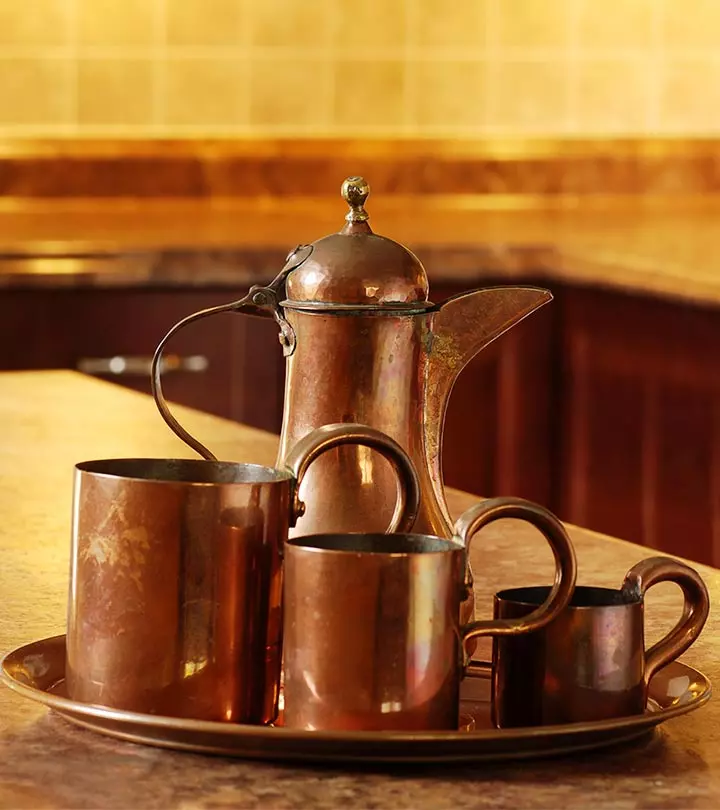
Image: Shutterstock
Copper pots were an inseparable part of our ancestral culture. But have you ever asked your elders why these pots were prioritized over clay pots? It is because this ayurvedic practice of drinking water from a copper pot offers many health benefits. Today, our modern culture is trying to realize the science behind these traditions. Want to know more about the benefits of drinking water from a copper pot? Continue reading.
Reasons Why You Should Drink Water From A Copper Pot
1. Copper Synthesis

The human body cannot synthesize copper on its own. Copper is essential for certain metabolic functions. We need a steady diet of copper to synthesize the element in our body as it is essential for boosting metabolism. Thus, it is advised that one regularly drink water stored in a copper vessel (1).
 Quick Tip
Quick Tip2. Eliminates Bacteria
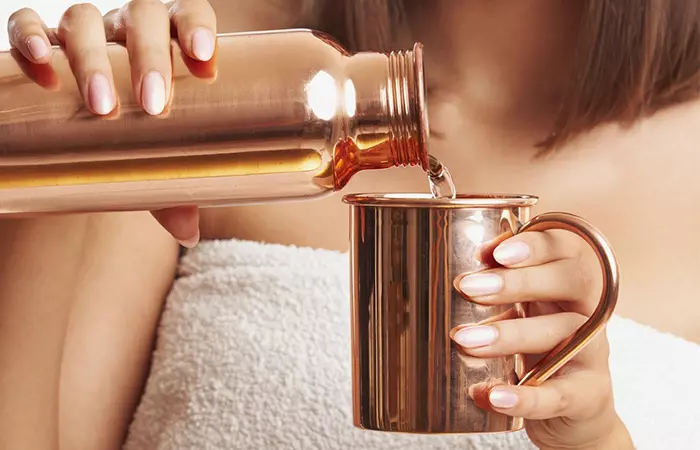
Though Ayurveda has documented the health benefits of copper pots for centuries, the world has caught on recently. The drinking water supply pipes and household taps were usually made of copper, whose antimicrobial properties were recorded. Water stored in copper pots can eliminate E.Coli within 24 hours. It also helps combat water borne diseases like Salmonella, typhus, Shigella spp., cholera and viruses such as, Enterovirus and Hepatitis A (3).
A study published in Antibiotics in 2025 analyzed the antimicrobial activities of copper with respect to killing bacteria, such as E. coli. The graph below displays the difference in the survival rate of bacteria when in contact with cupric sulfate (an important salt in copper). The survival rates were initially observed to be higher in the solution than when the solution contained concentrations of cupric sulfate.

Analysis Of Copper's Antimicrobial Activity In Killing Bacteria
Source: Copper Kills Escherichia coli Persister Cells
3. Regulates Thyroid Function
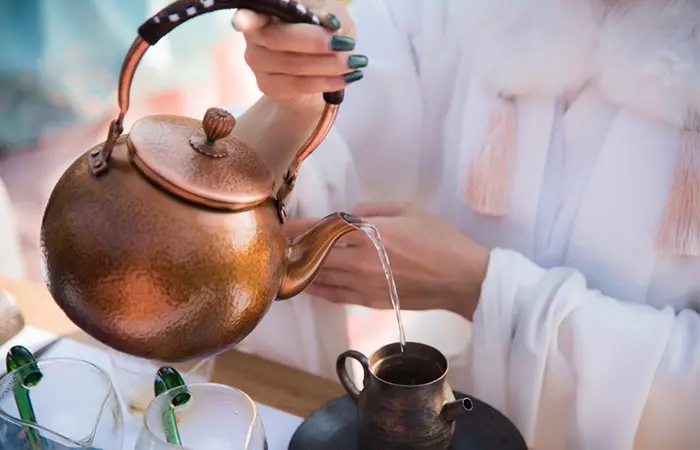
Copper is one of the few trace minerals essential to the human body. The correct functioning of the thyroid gland depends on the amount of copper you have in your system. Thyroid problems can be caused by different things, but copper deficiency is a major reason. Having a glass of water stored in a copper jug right before a meal can help you strike a balance and help combat thyroid problems.
4. Combats Arthritis
Since ancient times, the anti-inflammatory properties of copper have been used to help combat arthritis and other joint pains.
It boasts of extremely effective placating properties. It is especially good for boosting joint health and relieving inflammation caused by osteoarthritis (4).
5. Combats Anemia
Copper has many medicinal abilities. Perhaps the most understated is its role in the prevention of and the fight against anemia. Copper deficiency can also lead to anemia, and having a glass of water stored in a copper vessel can help you raise the levels of hemoglobin in your bloodstream (5).
 Quick Tip
Quick Tip6. Heals Wounds
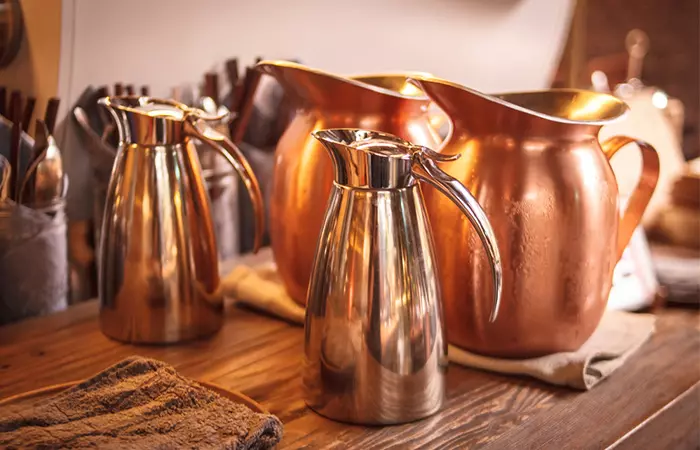
Copper peptides are slated to be one of the best healing agents. There are a number of medical products that contain copper peptides to treat wounds and skin damage. Copper peptides usually fuel collage production. They are also said to improve the efficacy of antioxidants. Drinking water stored in a copper jug can thus help you heal wounds quick. The other option involves getting your hands on expensive medicines that contain copper peptides (7).
7. Curbs ADHD (Attention Deficit Hyperactivity Disorder)
ADHD is the bane of our generation. It manifests itself in many forms and can lead to other neurobehavioral disorders. Drinking water from a copper vessel can help enhance brain function and curb the effects of ADHD. Scientists have determined that people with ADHD have an imbalance of copper in their diet. Copper rouses the diencephalon, or the old brain. The old brain is responsible for our animal responses. Copper imbalance may tilt our cognitive functions towards the old brain. Therefore, drinking water stored in a copper vessel can help you curb ADHD (8).
8. Anti Carcinogenic
Cancer is a killer. The disease is like the end of the world for most people who contract it. But then, copper has excellent antioxidant characteristics. This is why it is such an important element in the fight against cancer. It helps curb the development of new cancer cells and helps repair the body. Drinking water from a copper vessel can thus help curb cancer and provide antioxidants necessary to the body (9).
9. Slows Aging
Copper has excellent antioxidant and anti-aging properties; it helps reduce fine lines, wrinkles, and patchy skin. Drinking water from copper pot can thus help you look younger and fitter. It aso aids the formation of new blood vessels, wound healing, and skin generation, thus making your skin look better (10).
10. Helps Pregnant Women
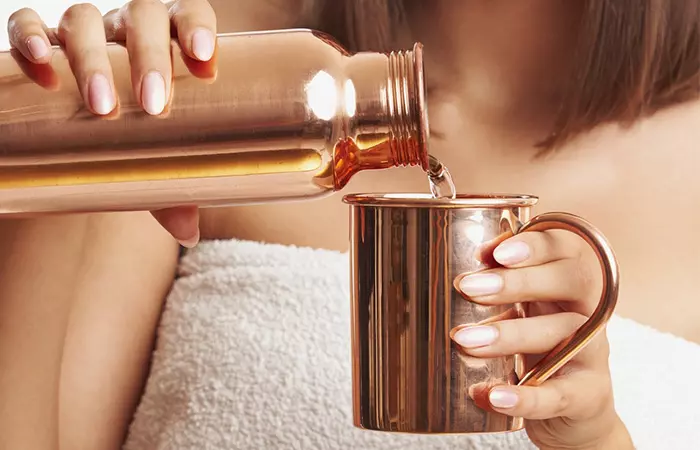
Nutritionists swear by the efficacy of copper for pregnant women. Copper is important for the production of RBCs. It boosts the production of red blood cells (RBCs), and helps repair tissues and digests sugars. Pregnant women need copper as it helps in the formation of the unborn child’s heart, blood vessels, skeletal and nervous system. Copper also helps promote hair and skin health. For pregnant women, having a glass of copper pot water is extremely essential.
Now, let us move on to something interesting. Did you know that using copper pots is practiced across cultures for various uses? Scroll down to learn more about it!
Key Takeaways
- Copper is one of the essential trace minerals required for the body, so storing water in a copper pot for 8-10 hours is recommended to increase copper ions in water.
- It has antibacterial properties that help fight infection, build immunity and heal wounds.
- Copper is also required to regulate thyroid function, form red blood cells and prevent anemia.
- Drinking water from a copper pot has also shown to boost one’s immunity due to its antimicrobial properties.
Cultural Practice Of Using Copper Pots
There are considerable cultural differences in how copper pots are used throughout the world. Here are a few instances:
- India: Tamra Jal is a popular Ayurvedic practice in India, where it is thought that water kept in copper pots will improve vitality and have therapeutic effects. This age-old custom originates from the belief that water enhanced with copper balances the body’s three doshas such as Pitta, Kapha, and Vata.
- Japan: Copper containers are often used in traditional tea rituals in East Asian countries like Japan. They are valued for how their strength and beauty can enrich the experience.
- African Culture: Copper pots represent wealth and health across various native African cultures. They are often utilized as beautiful objects for rituals or decorations in addition to being used for cooking.
Such cultural practices have naturally been adopted by consecutive generations, thus becoming a part of everyday life. Further, the earlier-stated benefits explain why drinking water from a copper vessel is a popular traditional practice. However, it is also important to be aware of the potential side effects and precautions associated with it.
Side Effects Of Drinking Water From Copper Pot
Though copper allergies are rare, anecdotal evidence suggests that drinking water from a copper pot or jug may trigger allergic reactions, such as rashes or itching. Research suggests that drinking too much of this water may lead to copper toxicity, which could result in side effects like nausea, vomiting, stomach pain, and diarrhea (11). So, if you feel any discomfort after consuming water from a copper vessel, consult your healthcare provider immediately.
Another thing you should be mindful of is avoiding dirty copper vessels. Make it a point to clean your copper jugs regularly with dish soap or traditional methods like lemon and salt.
An additional benefit of drinking copper water is that it tastes different. Raghu Ram, a blogger, shared how good natural mineral water tastes to him. He writes, “Our homemade mineral water tastes like the temple’s ‘Theertham’, often my friends and people who drink our house’s water say so. My Mom is the genius brain behind the further purification of water who makes it taste like the ‘Temple’s Theertham’(i).” He keeps the drinking water in a copper pot for a day and then transfers it to a mud pot to keep it cool.
Infographic: 5 Benefits Of Drinking Water From A Copper Pot
Drinking water is part of our daily routine and essential for our survival. You can add more benefits to this simple routine by drinking it from a copper pot. This may reduce the risk of anemia and boost metabolism besides offering other benefits. Check out the infographic below to learn more about why you should include this practice in your routine.

Illustration: StyleCraze Design Team
Drinking water from a copper pot offers an array of health benefits and encourages sustainability. It helps in copper synthesis, eliminates bacteria, helps in regulating thyroid function, helps combat anemia and arthritis, eases wound healing, helps manage attention deficit hyperactive disorder, and has anti-carcinogenic properties. The water stored in a copper pot also helps delay the signs of aging and is beneficial for pregnant women. However, it would be best to clean the copper pots or jugs in which you store the water to avoid the unpleasant smell.
Frequently Asked Questions
Can we drink water from a copper pot daily?
Drinking water from a copper pot every day might increase copper levels in your body, which may cause gastrointestinal issues or increased toxicity levels, impacting your organs like the liver.
Does copper water help with weight loss?
Anecdotal evidence suggests that drinking copper water may help reduce weight loss and bloating. Research suggests that copper is a brain stimulant that can help in weight loss (12). However, further evidence is required to substantiate this claim.
How long should we keep water in copper vessels?
Store water in copper vessels for about 5-6 hours or longer to reap the benefits of copper.
Does copper water darken skin?
Copper, in the skin, is a cofactor of tyrosinase (protein), an essential enzyme that gives skin and hair their pigmentation (10),(13). So, an increased level of copper water may darken the skin.
In which season should we not drink copper water?
You can drink water stored in copper pots in all seasons.
Is copper water good for constipation?
Copper can be used to flush the stomach, aiding in digestion. This might improve bowel function too.
Can you put lemon water in a copper vessel?
No. You shouldn’t put lemon water or juice in a copper vessel. The citric acid in lemon juice can corrode the vessel quickly, react with copper, and lead to adverse effects.
Drinking water from copper vessels can improve your health! Learn how in this informative video.
Personal Experience: Source
StyleCraze's articles are interwoven with authentic personal narratives that provide depth and resonance to our content. Below are the sources of the personal accounts referenced in this article.
i. The ‘Recipe of Real Mineral Water’https://eastgaterr.blogspot.com/2019/04/the-recipe-of-real-mineral-water_22.html
References
Articles on StyleCraze are backed by verified information from peer-reviewed and academic research papers, reputed organizations, research institutions, and medical associations to ensure accuracy and relevance. Read our editorial policy to learn more.
- Copper in drinking water https://www.ncbi.nlm.nih.gov/books/NBK225407/
- Daily value and percent daily value on the nutrition and supplement facts labels https://www.fda.gov/media/135301/download
- Copper as an antimicrobial agent: recent advances https://www.ncbi.nlm.nih.gov/pmc/articles/PMC9033467/
- The impact of trace elements on osteoarthritis https://www.ncbi.nlm.nih.gov/pmc/articles/PMC8732765/
- Copper https://www.ncbi.nlm.nih.gov/pmc/articles/PMC3226389/
- Copper deficiency a new triad: anemia leucopenia and myeloneuropathy https://www.ncbi.nlm.nih.gov/pmc/articles/PMC5637704/
- Role of copper nanoparticles in wound healing for chronic wounds: literature review https://www.ncbi.nlm.nih.gov/pmc/articles/PMC8778594/
- Attention deficit and hyperactivity disorders https://drlwilson.com/articles/attention_deficit.htm
- Copper in cancer: from limiting nutrient to therapeutic target https://www.ncbi.nlm.nih.gov/pmc/articles/PMC10327296/
- Using copper to improve the well-being of the skin https://www.ncbi.nlm.nih.gov/pmc/articles/PMC4556990/
- Health effects of excess copper https://www.ncbi.nlm.nih.gov/books/NBK225400/
- A review on tamra jal or copperized water being useful in today’s lifestyle https://www.aiirjournal.com/uploads/Articles/2025/03/4492_26.Dr.Manisha%20Nikam.pdf
- Part III: general considerations of skin pigmentation: pigment cell regulatory factors https://www.sciencedirect.com/science/article/pii/S0022202X15492127
Read full bio of Dr. Zeel Gandhi
Read full bio of Jyotsana Rao
Read full bio of Arshiya Syeda
Read full bio of Himanshi Mahajan





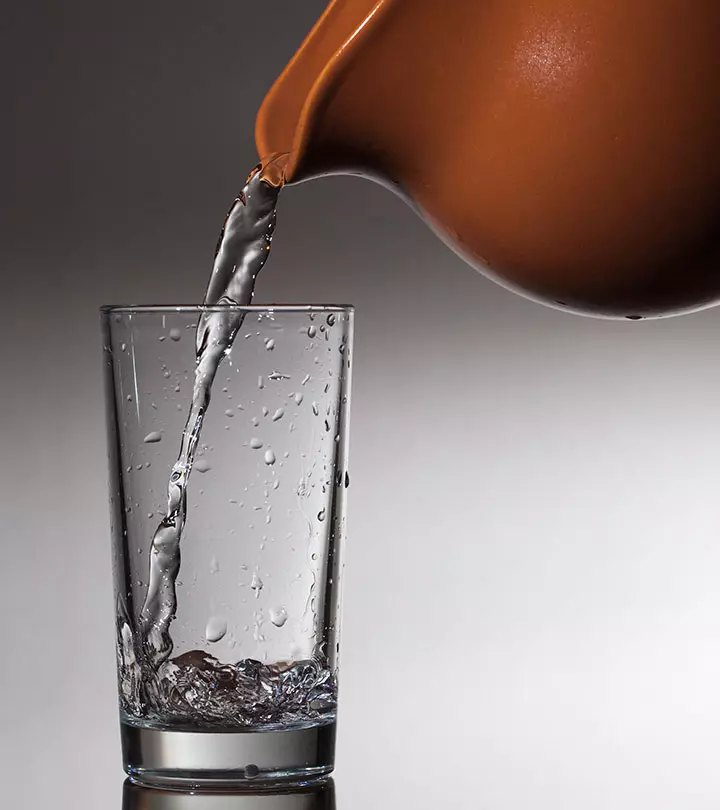
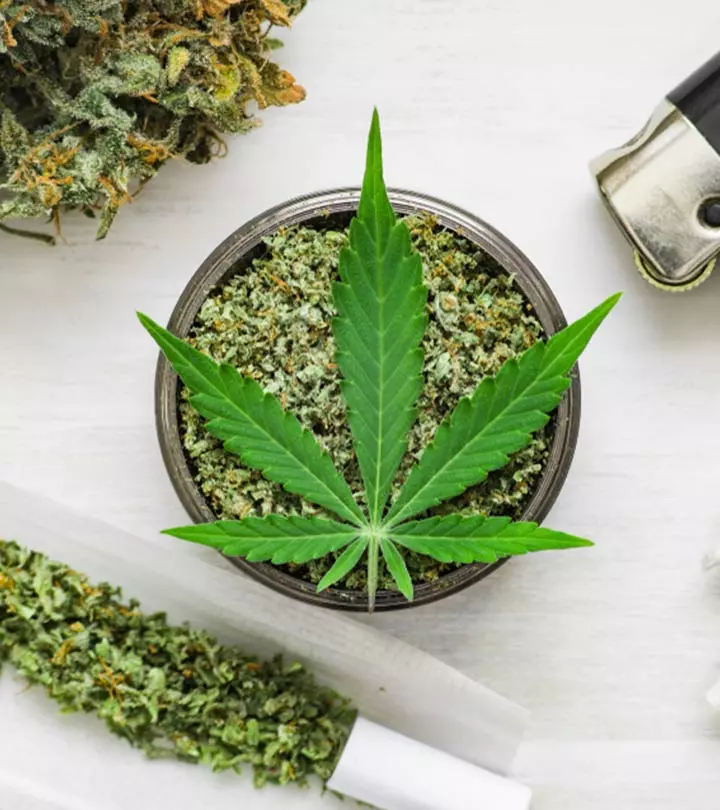



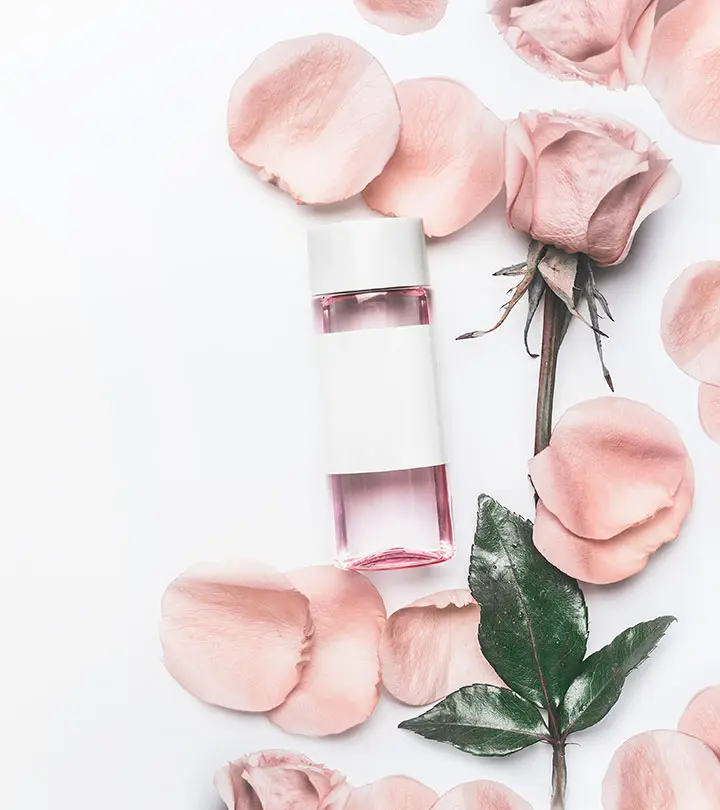

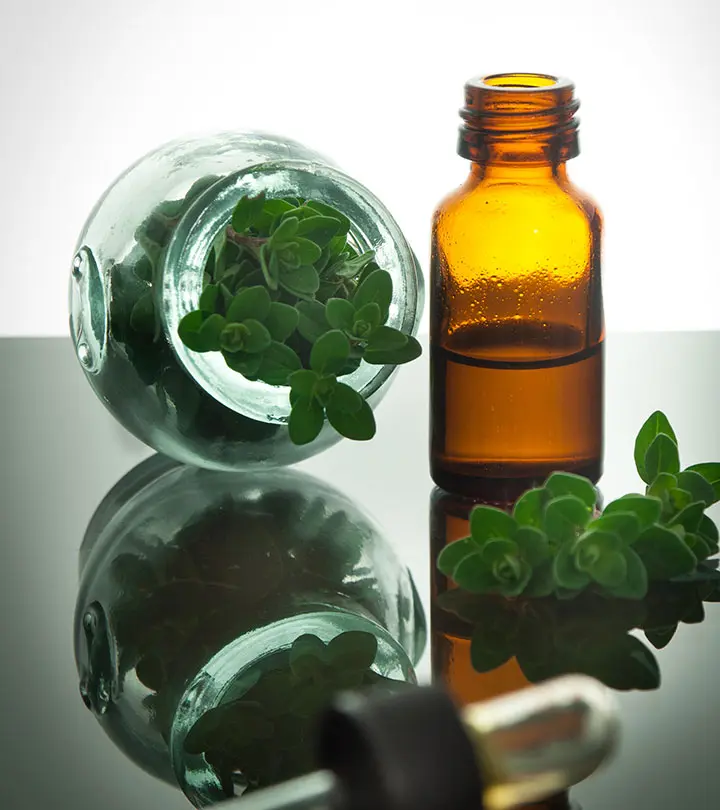


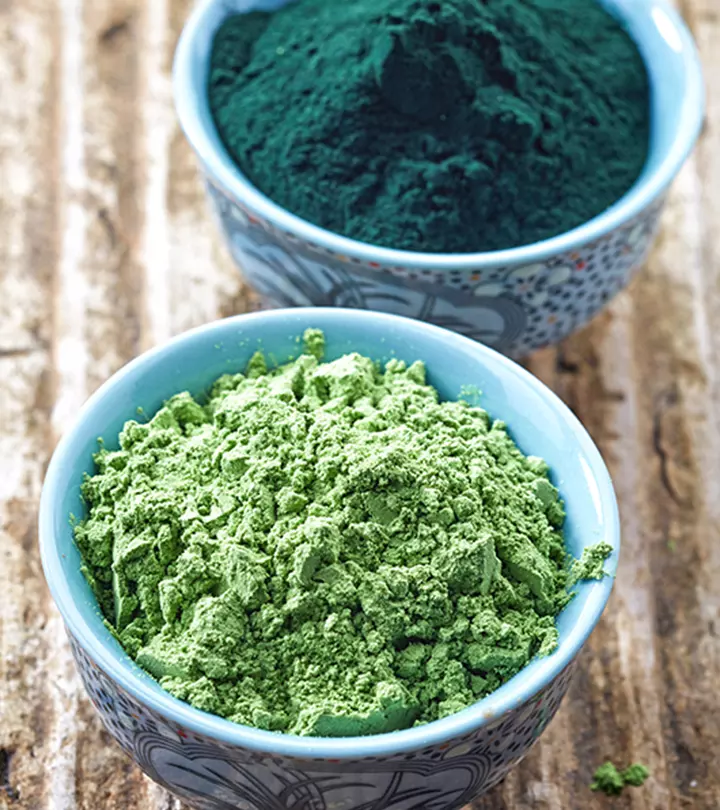

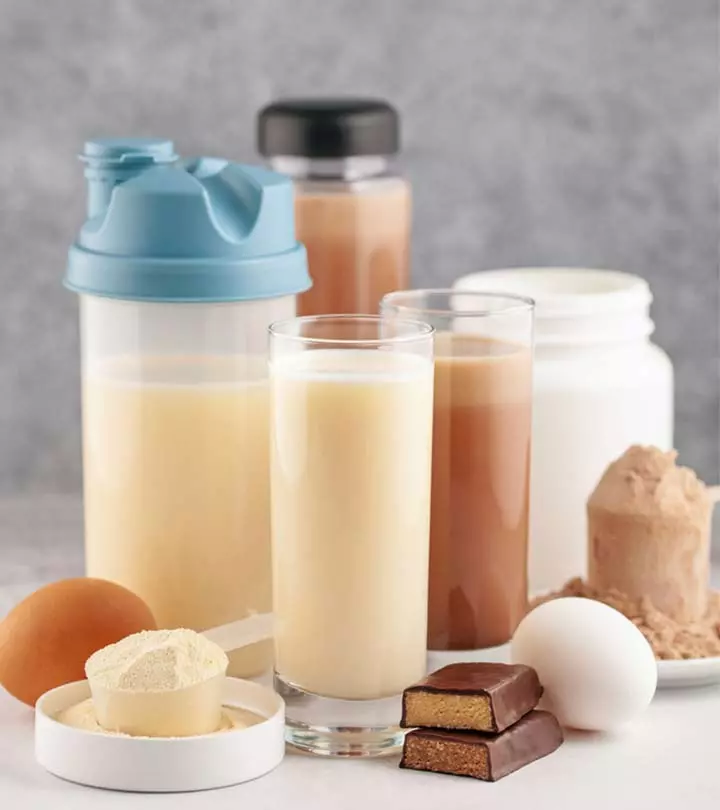









Community Experiences
Join the conversation and become a part of our empowering community! Share your stories, experiences, and insights to connect with other beauty, lifestyle, and health enthusiasts.